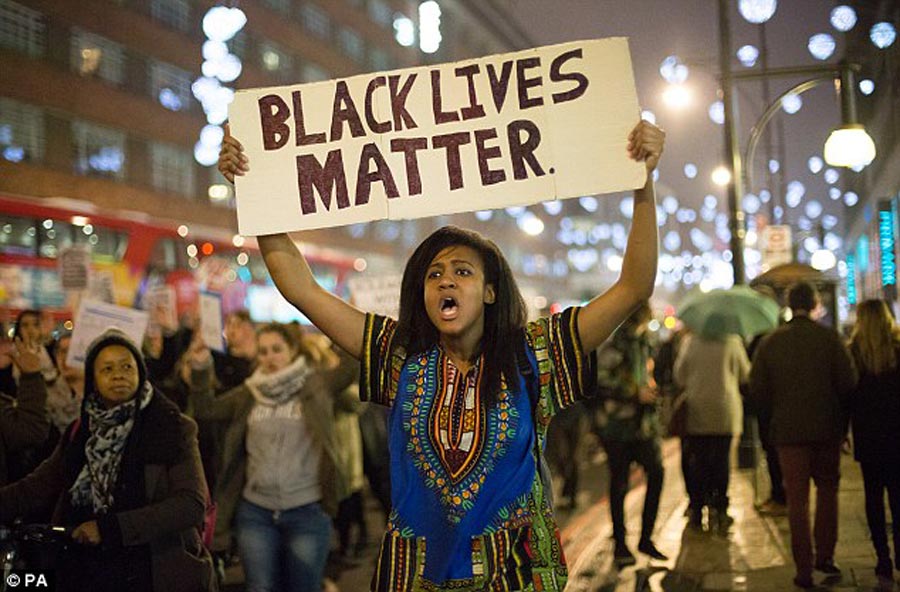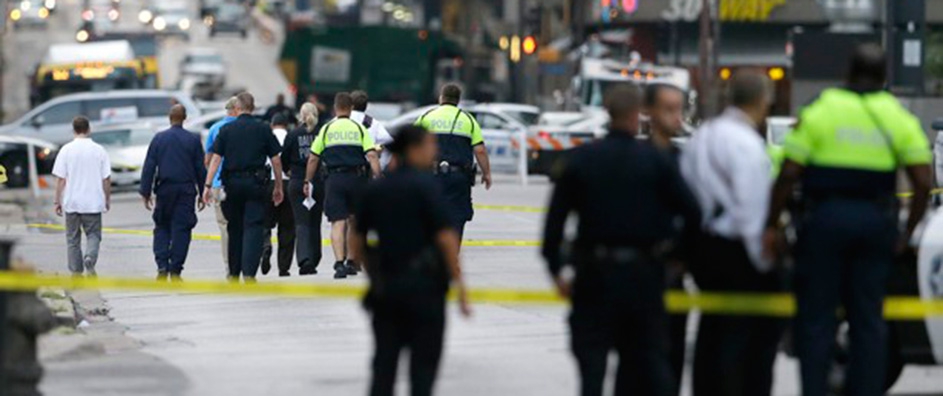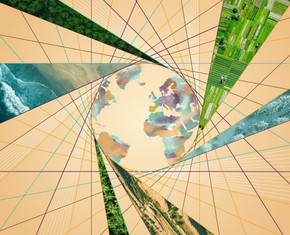The views expressed in our content reflect individual perspectives and do not represent the authoritative views of the Baha'i Faith.
This morning, in the wake of the police deaths in Dallas, I heard a law enforcement official on National Public Radio say “This was an attack on the fabric of our society.”
He was right—but he was only half right. The police deaths in Texas do represent a further breakdown in the fabric of American society, but that breakdown unravels, rips and tears our societal fabric from both directions, not just one.
Those who weave know that each piece of cloth has a warp and a woof, a tightly-woven, unified cross-section of fibers that gives all fabric its strength, its dimensions and its coherence. Fabric, by definition, is made up of many strands and threads. A thread, by itself, has no real power or sturdiness. You can easily break a thread, but it’s much harder to tear apart a piece of strongly-woven fabric.
Try it: go get a piece of fabric and hold it in your hands. It doesn’t matter what kind of fabric it is—cotton, wool or silk, they’re all woven of individual threads and fibers. Got it? OK, now see if you can pull one of those individual fibers out of the piece of fabric you’re holding. Grab the end of a thread and pull.
Sometimes, if the fabric you’re holding is loosely or poorly woven, it will unravel easily. If you have a scrap from a burlap bag, for instance, threads will pull out with very little effort. But if the piece of cloth in your hands has a tight, strong weave, you’ll have a very hard time extracting even one thread. I just tried it with the piece of fabric I’m holding—an old scrap of cotton—and I couldn’t get one thread to budge.
A strongly unified society behaves exactly like that piece of cloth—it’s very difficult to unravel. It holds together tenaciously, its threads close to one another, forming a strong unified whole. A society that loses its coherence and unity—or one that never had them woven into its original fabric in the first place—unravels easily.
So when I hear that our police represent “the fabric of our society,” I can’t help but come to the conclusion that the description leaves out a great many of us. The fabric of our society, whether we like it or not, has to include every thread in a tightly-unified weave. Police and civilians, supporters and detractors, black and white and red and brown, the rich and the poor, the entitled and the marginalized—they all make up the threads we need to weave a unified society. When we don’t include them all, we weaken the material that fabricates our entire fabric.
For too long, we have segregated dark-skinned people from the red, white and blue fabric of American society. Rather than incorporating all the strengths and the energy and the power of people of color, America refused, for a very long time, to allow them access to the big loom that weaves our social tapestry. We left out some of the strongest and darkest threads, and that made our weave loose, incomplete and weak.

Now, with the multiplying number of police killings of African American, Native American and Hispanic people, and the growing weight of videotaped evidence of those killings, we watch as that weave unravels even more. The Dallas police murders represent a portion of our social fabric tearing itself apart—but so do the multiple murders of people of color by other policemen. Each one of these incidents of horrible, unjustifiable violence rips and shreds our unity as a society.
When fabric loses one thread, it still holds together. But when it starts to lose multiple threads, it begins to fall apart.
The Baha’i teachings repeatedly cautioned Americans, many decades ago, about the consequences of neglecting the essential unity of the fabric of our society. In 1954 Shoghi Effendi, the Guardian of the Baha’i Faith, reminded us that racial prejudice could, as Abdu’l-Baha first warned in the early 20th Century, “cause the streets of American cities to run with blood:”
No less serious is the stress and strain imposed on the fabric of American society through the fundamental and persistent neglect, by the governed and governors alike, of the supreme, the inescapable and urgent duty — so repeatedly and graphically represented and stressed by Abdu’l-Baha in His arraignment of the basic weaknesses in the social fabric of the nation — of remedying, while there is yet time, through a revolutionary change in the concept and attitude of the average white American toward his Negro fellow citizen, a situation which, if allowed to drift, will, in the words of Abdu’l-Baha, cause the streets of American cities to run with blood… – Shoghi Effendi, Citadel of Faith, p. 126.
That dreadful prophecy has come true once again. Until we can knit the fabric of our society closer together, in a tighter, more loving and more unified weave, it will tragically continue to come true.
You May Also Like
Comments

















how much longer this cultural
crisis can go on, but it feels to me
like a water-shed time; it has been
too much on everybody's mind for
a return to unawareness or denial.
I feel somewhat safe in assuming
that, but nothing beyond that. Baha'is know the remedies and are
assured of an eventual good outcome, but can't rule out any
short-term calamities. To me, it seems like rapidly-more people are "having the conversation" on race
and want closure, which is one step ...
forward.